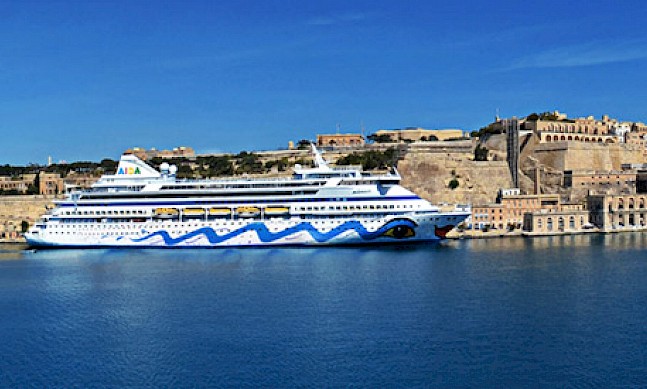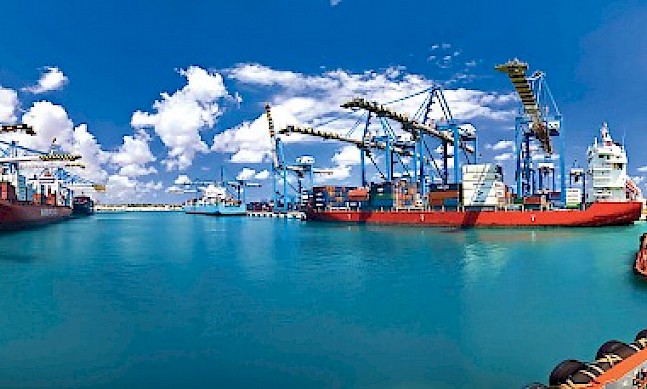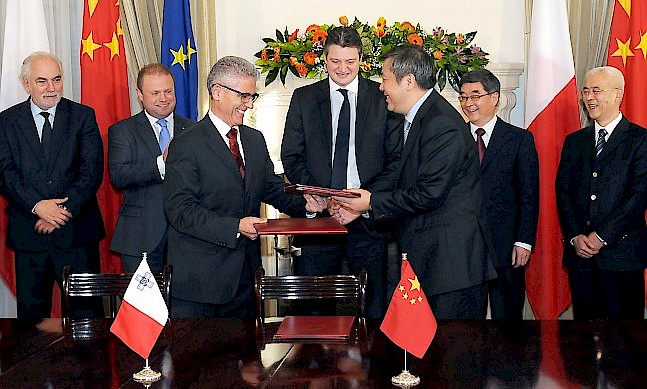
Formerly known as Zammit & Associates, CSB Advocates provides smart and effective legal solutions to both domestic and international clients. Dr Andrew Zammit, the firm’s managing partner, gained experience in one of Malta’s larger law firms prior to establishing his own firm, and counts on solid experience in the areas of mergers and acquisitions, company law, , financial services regulation, technology law and shipping law. He met with The Report Company to discuss his firm’s focus, and the competitive advantages of Malta as a jurisdiction.
The Report Company: In 2012, Zammit & Associates became CSB Advocates. What was the thinking behind the brand transition?
Dr Andrew Zammit: Financial services, shipping and e-commerce are the pillars of our organisation. The strategy behind the transition was quite simple. Previously we kept separate brands for when we are acting in our legal capacity and for when we are acting in our administrative and support capacity through CSB, as we provide incorporation, domiciliation, secretarial and accounting services. Then we took the view that if we unified the brands and had one brand across our service lines, it would be stronger in terms of perception. We are one operation operating under one roof with shared resources providing both legal and non-legal services as a one-stop shop.
Since that transition we’ve also launched a real estate side of the business, Malta Sotheby’s International Realty, which is one of the better-recognised international brands. We have also been instrumental in establishing other strong brands in Malta such as Regus managed office facilities, which is in keeping with our strategy of servicing international clients.
TRC: How has the brand transition impacted the way you do business?
AZ: When we launched the renaming and rebranding of the firm, our announcement was “We’ve changed our name; our DNA stays the same”. That’s the way that we portrayed this and essentially it was just literally a change in the firm name and brand. The law firm’s operation has remained fundamentally the same, operating as a distinct business unit from the group companies, and offering a seamless service to clients using legal and other support services.
TRC: What interest do you have in foreign markets?
AZ: We maintain a presence outside Malta via our representative offices in other jurisdictions such as the UK, Brazil and Poland. This resulted from the fact that we saw an interest expressed in our services within those jurisdictions. Insofar as the legal arm is concerned, we are Maltese lawyers; we advise on Maltese legal issues so for the time being our strategy is not to go internationally as a legal firm. On the CSB Group side, we are looking into possible opportunities in Asia. There’s a possibility that we’ll have a very small presence in a key jurisdiction in Asia. Within six months we should know whether or not we are going to be pursuing this.
TRC: Which would be your major focus?
AZ: Our corporate practice is very strong in mergers and acquisitions. We’ve got a very strong shipping and maritime unit with a lot of ship finance and registration transactions. We are also available for ship arrest and claims against ships. Technology & telecommunications is another area of law in which we’ve developed a leading edge, and it’s larger than just e-gaming. We do a lot of online business models, whether it’s online auctions, online financial services, affiliate arrangements, and other similar models, and have thus created very much a niche of expertise in that area. We continue to gain significant traction and market share in this practice area.
“Our corporate practice is very strong in mergers and acquisitions. We’ve got a very strong shipping and maritime unit with a lot of ship finance and registration transactions.”Post This
More recently we have developed an increasingly stronger practice in immigration, employment and residency so these are the full private client solutions for getting residence. Since the Malta Individual Investor Programme (MIIP) was launched, there has been a lot of interest from correspondent law firms in other jurisdictions for these sorts of solutions.
TRC: What is your view of the Malta Individual Investor Programme (MIIP)?
AZ: I have no doubt that it will be successful. It has had a bit of an interrupted development, with the opposition and the European Commission having their respective views. I feel that the whole project could have been better managed with more dialogue happening from the outset.
I think there is a lot of potential positive to come out of the programme. Through our realty operation we are seeing some excellent-quality applications. We’re looking at people interested in properties of a value ranging between €1.5-4 million, so we’re seeing some interesting clients look more closely at the investment opportunities offered by the Maltese property market. How many of them will come through and actually buy the properties here is yet to be seen. I think it’s a matter of “time will tell”. But I think that all- in-all it should end up being a positive development for Malta, if we manage this carefully and prudently and attract the right sort of people.
TRC: How would you appraise Malta’s shipping and maritime sector?
AZ: Malta always ranks amongst the top three positions as the largest-registered tonnage in Europe, so in that sense we stand as a very respected jurisdiction. There’s been a lot of work done on maintaining standards, so I think in terms of implementation Malta has done a lot to manage its reputation on the international plane.
What we do as a law firm to enhance Malta’s attractiveness in this respect is speak to legal colleagues about what opportunities could be available through Malta with various tax exemptions allowed on the operation of tonnage tax ships, the attractiveness of private yachts and super-yachts being registered on the Maltese flag as commercial operational yachts or even privately-owned yachts benefitting from leasing solutions that are entitled to reduced VAT rates. There are a number of solutions which we discuss with our correspondent firms and intermediaries in other jurisdictions. We visit correspondent law firms in major cities like London, Luxembourg, Geneva and Zurich and also attend conferences and fairs to promote Malta’s attractiveness as a shipping jurisdiction.
We also often contribute to publications, making people aware of what solutions are available. The aviation sector is clearly an offshoot of the success of the shipping sector so there we are experiencing a bit more take-up on Maltese structures to own aircraft. In terms of registration of aircraft on the Maltese register, we have seen less take-up there but increasingly more interest so things could certainly be picking up. We were involved in advising an AOC- (Air Operator’s Certificate) operator, and hopefully that’s going to start attracting more aircraft owners to bring their aircraft to Malta and have them managed by these AOC operators as time goes by.
“One factor that has added significant value for our international clients that we service locally is that we have a network of respectable firms to be able to refer work to.”Post This
TRC: What are Malta’s competitive advantages in the online gaming sector?
AZ: We’ve looked at this industry quite closely from several angles and I think Malta’s success was a result of it being one of the first movers. It was the first to regulate gaming, taking a bold move in the early 2000s. The argument of having a Maltese license and being able to offer your services around Europe because of the free movement of services has been diluted somewhat because there have been several public policy arguments raised by other member states, raising their interest in controlling what games were being offered in their jurisdictions and how they were being regulated.
We now have a situation where in France, Spain, Italy, Denmark, the UK and many other European jurisdictions licensing regimes have been introduced which now have diluted Malta’s relevance. E-gaming was and still is a significant component of the Maltese economy but I can’t see that grow much more. The large operators that we continue to service with their corporate and employment and general legal needs seem to be completely satisfied with Malta’s business environment, support and knowledge base and they will most likely stay here. They’re happy doing business in Malta and they’ve got certain knowhow from the employees that they have found here but I don’t see any many other large operators coming to Malta just to get the Maltese license. If they do come to Malta they will most likely be looking at tax and cost efficiencies, knowhow-related considerations, and maybe they will set up part of their operations here to gain those efficiencies.
From our active involvement in online gaming we have developed a very strong technical competence in technology and online models. In fact we’re currently seeing payment services and electronic money institutions as the more exciting areas.
TRC: What advantages can CSB Advocates offer to its client base?
AZ: One factor that has added significant value for our international clients that we service locally is that we have a network of respectable firms to be able to refer work to. If we have a problem relating to German law, Italian law, French law or UK law, we have a network of people who we know and trust who we can refer work out to. That definitely increases our value-added in the clients’ eyes because we can manage a legal process from end-to-end.
TRC: What makes CSB Advocates stand out from its competitors in Malta?
AZ: As a young law firm, because we were only set up in 2006, we had to differentiate ourselves in the market. We have done this by being very quick and practical without losing our sight of the sound legal base on which we are advising. Having practised myself for seven years with other law firms, when I established Zammit & Associates, now CSB Advocates, I realised there were certain shortcomings and deficiencies in law firms which could be improved. This is what I set out to do: to improve our embracing of technology to do business more intelligently and to get things done quicker and in a more client-friendly manner.
“Technology and the internet have become disruptive of the way that even legal practice is conducted, so we have tried to turn that to our benefit by being sharper and more focused. We learn our clients’ business, become very close with them, building a meaningful, two-way rapport.”Post This
We have been very happy to share information. We have prepared basic reference handbooks for free circulation amongst our clients to give them access to the basic tools they need to work day-to-day. We do our best to share relevant information with clients, because we realise that we are living in an age of information overload, not in an age of relative information scarcity as was the case before the proliferation of the internet. In the 1990s, it was a very different problem. When you wanted to get an answer it was difficult to get an answer. Now it is difficult to find out what information is accurate and relevant.
Technology and the internet have become disruptive of the way that even legal practice is conducted, so we have tried to turn that to our benefit by being sharper and more focused. We learn our clients’ business, become very close with them, building a meaningful, two-way rapport . In that way we look towards building a solid and long-term client base. Our client base is growing every year. We try to “take out the drama” and add true value in how we can be more effective advisors to our clients.
TRC: What would you identify as the strongest points for Malta to sell itself abroad as an attractive jurisdiction?
AZ: We certainly can’t be everything to everyone. I think if we had to look at where we should be promoting ourselves, I would point to the financial services sector and the technological area. Malta is a small jurisdiction, so even rolling out technology over here as a test ground before it’s taken out on a larger scale could be very attractive. I believe it’s been done before by Vodafone and I can see that continue to be happening even in things like contactless payments. We’re very excited to see these technologies tested here. A tax exemption has also been introduced into Maltese law for patents and we feel that this is a ripe opportunity to attract more innovative and exciting business to Malta.
TRC: What’s next for CSB Advocates and what do you aim to achieve over the coming years?
AZ: Our strategy is to continue doing what we are doing, to keep being innovative. We are fully aware of technology and the disruption it is going to be creating in any consultant’s value. Computers are going to be challenging the way that we work and how we work. We as a firm are undertaking a few projects that can help automate what can be automated, giving better value to clients where we can and focus upon where we as human beings with emotions, with management expertise, with the ability to cut through problems and psychologies, can be more effective to our clients. The information bits we’ll try and leave to computers.







